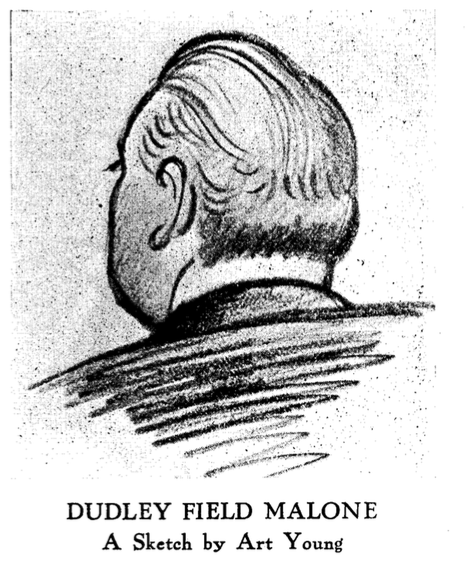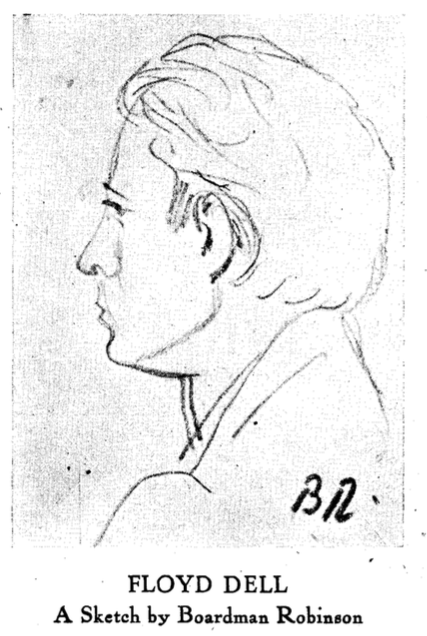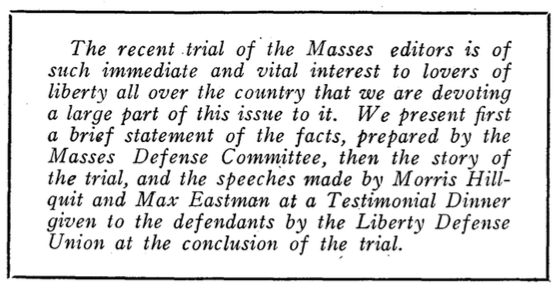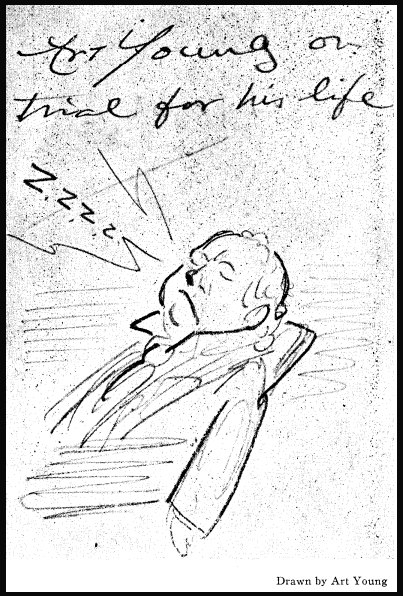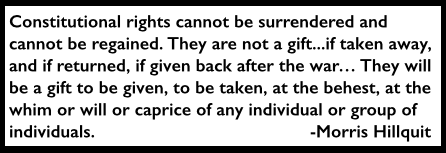
~~~~~~~~~~~~~~~~~~~~~~~~~~~~~~~~~~~~~~~~~~~~
Hellraisers Journal, Thursday June 6, 1918
New York, New York – The Masses Trial as Told by a Defendant, Part II
The trial of the those connected with The Masses began on April 15th of this year and resulted in the dismissal of the jury on April 27th, for failure to agree on a verdict. Another trial of the defendants is certain, according to the prosecution. Floyd Dell, one of the defendants, tells the story of that trial wherein the defendants were facing up to twenty years in prison for alleged violations of the Espionage Act of 1917. We began with Part I yesterday and conclude today with Part II.
The Story of the Trial [Part II]
By Floyd Dell
Speech of Dudley Field Malone
[Said Mr. Malone:]
This is a case of large issues-issues which go to the very source and purpose of our Government. And so I would like to read to you very briefly a historic statement of these issues-for these things have been spoken with classic utterance, and doubtless you would rather hear them from the original sources than from me-in order that you may have in your minds certain fundamental considerations in reaching a verdict and a judgment in this case.
In I792, Thomas Erskine defended one of the signers of our Declaration of Independence for printing a book-the “Rights of Man.” Thomas Paine had written that book, and it was being defended, and at that time Erskine laid down certain fundamental propositions from which flow the liberties of the press in all English-speaking countries.
Erskine said: “Every man not intending to mislead and confound, but seeking to enlighten others with what his own reason and conscience, however erroneously, may dictate to him as truth, may address himself to the universal reason of a whole nation
And that is the basis, gentlemen, that is the crux thought, underlying the freedom of the press. If anyone in this country has the power to say by autocratic power that a certain thought, because he disagrees with it, shall be taken out of the public discussion, there will no longer be a free expression of opinion.
Erskine said further, speaking of Paine-and he disagreed entirely with the opinions of his client, he did not agree with Paine’s views at all-“His opinions indeed were adverse to our system, but I maintain that opinion is free and that conduct alone is amenable to the law.”
I hope you will take that as the crux idea in this case in formulating your judgment-that opinion in a democracy like ours, must be free freely spoken, freely written. Only conduct is amenable to law.

